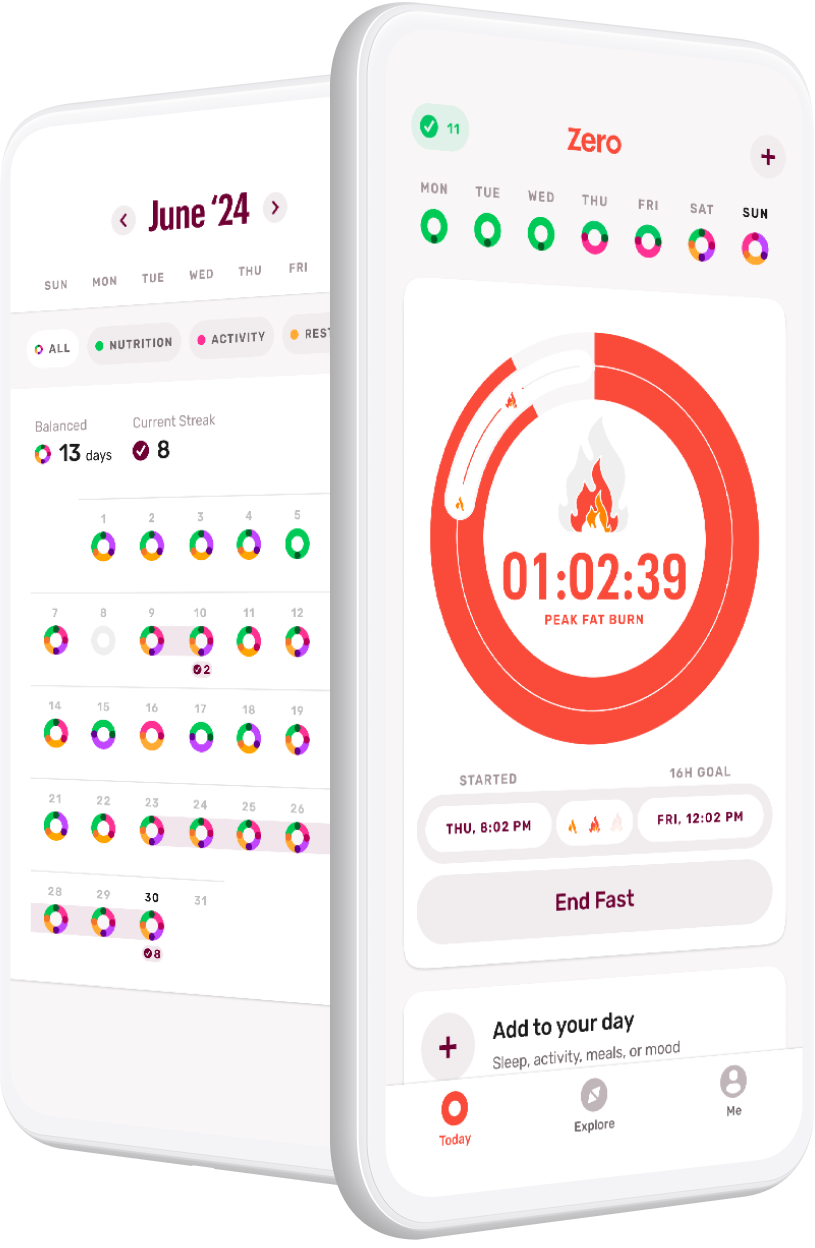What are some good substitutes for a sweet tooth?
Asked By: Shaina P.
If you are fighting a sweet tooth, rest assured you are not alone! Scientists are increasingly aware of the drug-like effects of sugar consumption that keep us coming back for more. Removing “added sugars” is a good place to start when trying to overcome these cravings, but simply cutting sugar from the diet is easier said than done.
Shaina’s question provides the perfect opportunity to discuss how to better respond to these cravings. Generally speaking, the best substitutions for sugar-sweetened foods are real foods that satisfy our sweet tooth. In our article “7 Simple Snack Swaps You Should Make,” Zero’s Nutrition Expect, Nicole Grant, RD, suggests some tasty alternatives for our favorite sweet snacks, making mention of some creative substitutions like grain-free granola and whipped coconut cream. We highly recommend checking that out for inspiration!
There are also several non-glycemic sweeteners and refined flour alternatives that don’t cause our blood sugar to spike, which can be used in place of the “real thing” in baked goods and desserts. From a metabolic standpoint, the best natural sugar substitutes are stevia, monk fruit, allulose, xylitol, and erythritol. Visit our article on “Which Sweeteners Break Your Fast” to learn more about sugar substitutes.
These swaps are great for managing blood sugar levels, but if a craving for sweet foods continues to get in the way of your goals, tackling your sweet tooth head-on may be what’s needed.
In this case, finding something that distracts you from your cravings such as naturally flavored sparkling water, bone broth, or coffee can be useful. Over time, with a reduction in sugar consumption, and perhaps all sweeteners, your tastebuds and cravings can actually start to change and you’ll start noticing you no longer crave the sweet foods you once did. In one study, after a month of following a low-sugar diet, participants’ sensitivity to sweets was intensified, suggesting that they required lower amounts of sugar for the same sweet experience after dramatically lowering their sugar intake for a month.
Time-restricted feeding (TRF) and particularly early TRF, which shifts one’s eating window to earlier hours of the day, has also been shown to decrease the desire to eat. It’s possible that by simply consuming all of our Calories within a smaller time frame, we experience reduced cravings for all food in general, sweets included!
Lastly, the foods we eat can influence our cravings by altering the composition of our gut microbiome. There are certain strains of bacteria that love sugar, and the more sugar we eat, the more we support their survival and multiplication and thus give them the power to influence our cravings. By sticking to a diet low in refined carbohydrates (sugars and refined grains/flours) we may be able to essentially “starve” off these bacteria that thrive in high-sugar environments, thereby dampening their hold on our cravings.
Removing sugar from the diet isn’t always easy, but we hope that these tips encourage you to make healthy changes to help combat that sweet tooth!
References
DiNicolantonio JJ, O’Keefe JH, Wilson WL. Sugar addiction: is it real? A narrative review. Br J Sports Med. 2018 Jul;52(14):910-913. doi: 10.1136/bjsports-2017-097971.
Yang Q. Gain weight by “going diet?” Artificial sweeteners and the neurobiology of sugar cravings: Neuroscience 2010.Yale J Biol Med. 2010;83(2):101-108.
Wise PM, Nattress L, Flammer LJ, Beauchamp GK. Reduced dietary intake of simple sugars alters perceived sweet taste intensity but not perceived pleasantness. Am J Clin Nutr. 2016;103(1):50-60.Alcock J, Maley CC, Aktipis CA. Is eating behavior manipulated by the gastrointestinal microbiota? Evolutionary pressures and potential mechanisms.Bioessays. 2014;36(10):940-949.
About the Author: Kristi Storoschuk
Kristi Storoschuk is a science communicator who focuses her research on ketogenic diets, metabolic therapies, and fasting for health optimization. She currently works alongside the world’s leading ketogenic researchers providing scientific education for the mainstream audience. She completed her Bachelor of Science (Honours) at the University of Guelph in Ontario, Canada. Outside of her research, she spends her time doing CrossFit and optimizing her health with an ancestral approach.
Download Zero on iOS and Android.
- The Complete Guide to Fat Burning - April 30, 2024
- Zero Live #4: 3 Ways to Boost Fat Burning - March 28, 2024
- Zero Live #3: Nutrition, Fast Breakers, and Fasting - March 11, 2024


